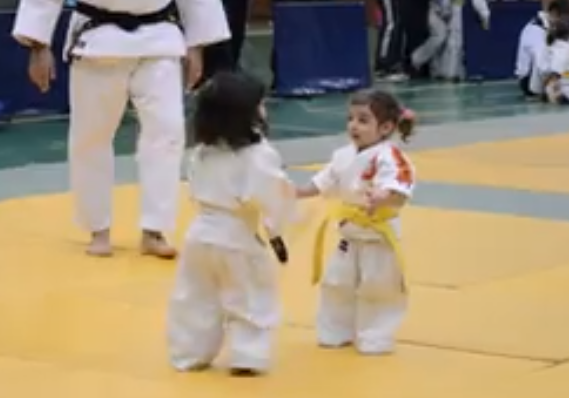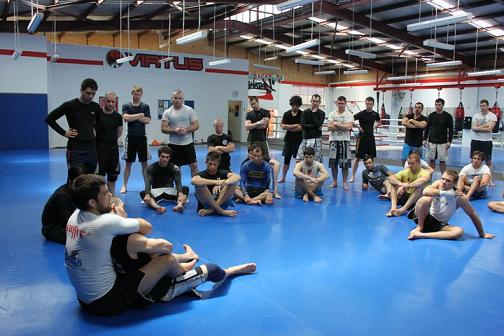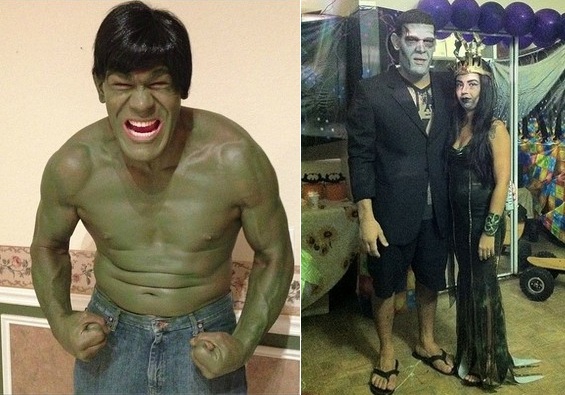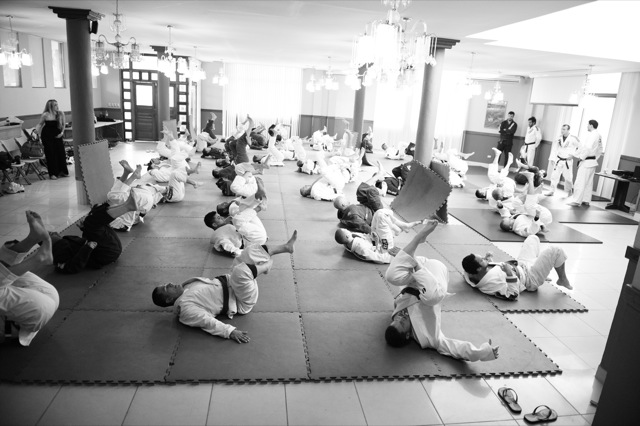
A Gracie seminar in Costa Rica / Photo by Ray Santana
By Mauro Ellovitch
A lot of folks don’t know quite what it is a prosecutor does. In Brazilian, the Public Ministry is an institution that, by our constitution, is meant to defend society. It has no link nor is in any way subordinate to politics. It is independent and cannot attend to anybody’s private interests. Prosecutors are enlisted through public testing, and the scope of what they do is only limited by the law. In a nutshell, prosecutors in Brazil are tasked with: making accusations in criminal cases; acting in defense of the environment, the collective rights of consumers, minors, the elderly and the handicapped; combating corruption; and defending other social rights and unavailable individuals. As you can imagine, these are no simple tasks.
I’m quite proud to be a prosecutor. And I’m certain that my years practicing Jiu-Jitsu help me to understand and better execute my mission. True Jiu-Jitsu teaches you to maintain control when in adverse situations, to respect colleagues and opponents, to learn from the more experienced, to always strive to improve, to know that winning isn’t everything, to not get intimidated by hardships, and to never give up—qualities that help me in my profession.
When I went to face a jury for the first time, nearly ten years ago, I didn’t feel too much pressure in sporting a gown and presenting two hours of accusations to a seven-person jury in a crowded courtroom. After all, I’d been through similarly tense moments when wearing a gi to compete against more-experienced opponents at Jiu-Jitsu championships in packed gymnasiums. The self-control and focus from the gentle art made it easier for me to perform in front of a jury and assure that dangerous killers were condemned.
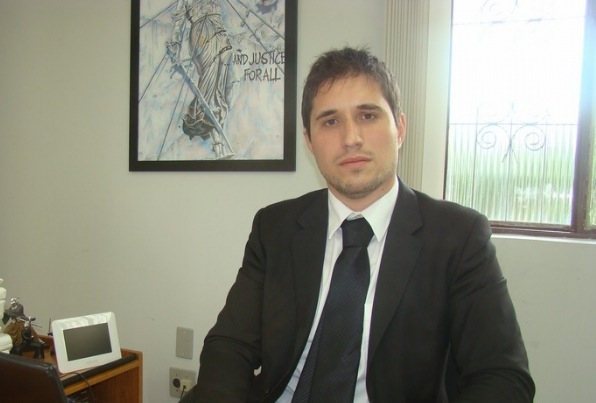
Mauro Ellovitch in his office / Publicity photo
The respect that comes with martial arts taught me how to work well with other prosecutors, judges, lawyers and even with defendants. To berate or mistreat the accused won’t help to get them condemned or bring them to justice. Victory on the mats or in the courtrooms comes from study, from well executed technical work and believing in what you’re doing.
I replicate the discipline, the intense training and learning I got from my Jiu-Jitsu professors when studying the law and in my dedication to cases. I read law books with the same interest that I have when learning a new submission. I stay up late taking notes, just as I spend hours repeating a sweep. I learn from the works of masters like José Afonso da Silva and Claus Roxin just as I would by taking part in a Helio Gracie or Flavio Behring seminar. In Jiu-Jitsu or the law, I know that if I don’t strive to get better I’ll end up getting overtaken.
The ethics from the martial art are key in being a good professional, a good prosecutor. What matters isn’t “winning” at any cost. If in winning a fight someone relies on underhanded tactics and seeks the easy route (doping, illegal moves, fixed results), he can’t be considered a real fighter, a martial artist. Likewise, a legitimate prosecutor can’t go looking for deceitful ways of winning a case. If there’s any trace of criminal activity, even if on the part of politicians, multimillion-dollar businesses or other influential interests, you can’t wimp out just to not have a rough time. And by the same token, if there’s proof the accused is innocent, the prosecutor has to absolve him instead of blindly condemning him. You have to always battle and appeal until obtaining a result that works for the collective good.
There’s no lack of pressure situations or adversity worse than getting mounted by Roger Gracie in our career. The press breathing down your neck, judges who couldn’t care less or are excessively formal, drawn out processes, bribery and intimidation of witnesses, threats from drug traffickers, difficulty in coming up with solid evidence—and those are just to name a few. The gentle art taught me to stay calm when at a disadvantage, not despair and try to escape the situation.
Above all else, Jiu-Jitsu taught me not to give up.
Even when I see news of corruption, the country’s civic and electoral unpreparedness, the weakening of laws protecting the environment and public safety—I don’t stop fighting, and I fall back on a maxim Carlos Gracie once said:
“Carry a firm conviction that the world is on your side, so long as you are true to the best of what you carry within you.”
What about you, how does Jiu-Jitsu help you to be a better professional?


